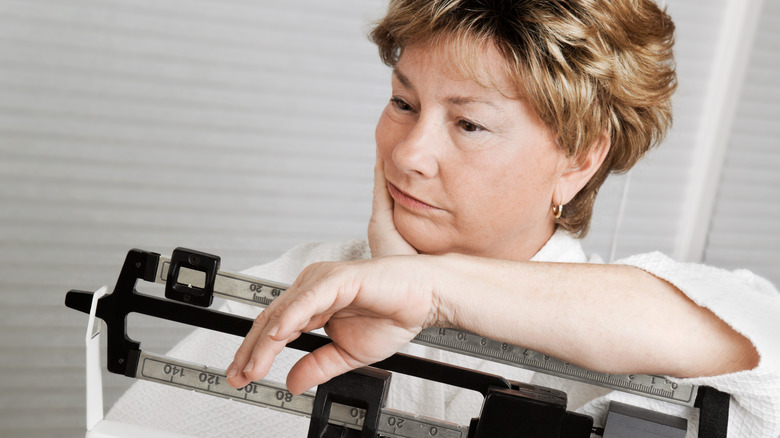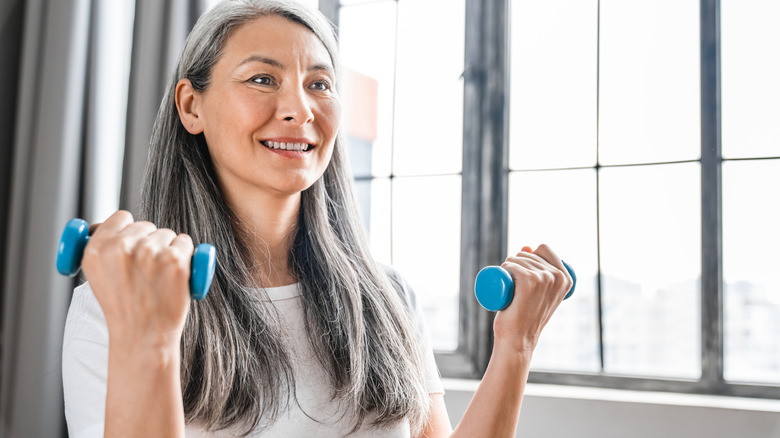The Real Reason Menopause Can Make You Gain Weight
Menopause causes a number of hormonal changes in the female body, with weight gain being at the top of the list. While weight gain is generally attributed to fluctuating hormones, it is also a symptom of aging, because the metabolism slows as you get older. Other factors such as genetics and lifestyle play a part in how much weight you gain as you go through menopause (via Mayo Clinic).
One reason why the pounds seem to pile on during menopause and the years leading up to it is because progesterone and estrogen levels fall at a steady pace. In addition to that, low levels of estrogen and estradiol are associated with fat gain around the midsection (via University of Rochester Medical Center).
The amount of quality sleep you may (or may not) be getting can also affect your weight. Hot flashes and insomnia are common symptoms of menopause and they can wreck a good night's sleep. One study found that poor sleep may reduce the amount of fat the body utilizes and result in weight gain.
Ways to combat weight gain during menopause
While it might seem like the odds are against you during menopause, there are things you can do to fight weight gain. Switching to a healthy diet and eating at a calorie deficit are two crucial steps to fight a slower metabolism. One study showed that menopausal women on the Mediterranean diet were successful in reducing fat around their midsections. In addition, women on vegan and vegetarian diets lost weight (via Healthline).
Along with choosing healthier foods, exercise is critical because it helps fight the loss of muscle mass that occurs with aging. Resistance training builds muscle, which burns more calories, and aerobic workouts are important because they promote fat loss. A regimen that includes both kinds of exercises is recommended.
Getting a good night's sleep is important not only for better health but it can help with weight loss. You can improve your chances of getting better sleep by sticking to a regular pattern. Avoid drinking caffeine and alcohol close to bedtime so you fall asleep quicker. Keeping your bedroom cool helps keep hot flashes at bay. Occasional use of over-the-counter sleep aids can also help (via U.S. News and World Reports).
You might also want to speak with your doctor to find out if hormone replacement therapy is right for you. Depending on your age and other factors, it may or may not be worth the risks involved (via Cleveland Clinic).


